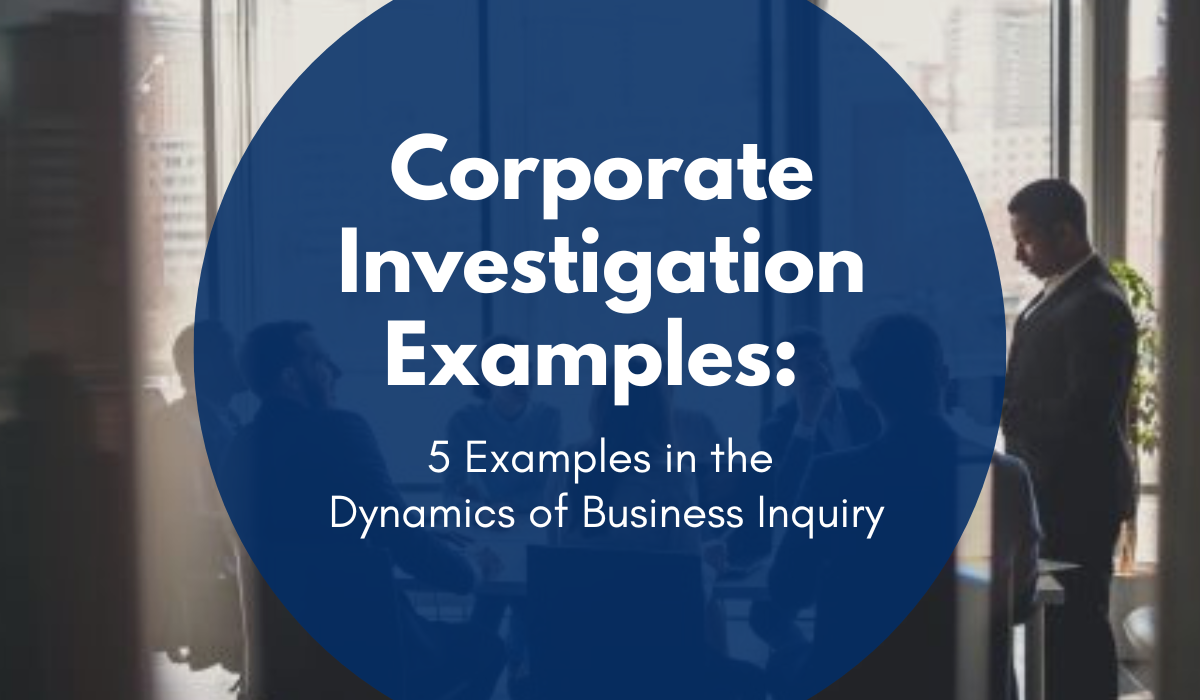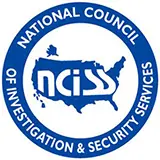Corporate investigations play a pivotal role in maintaining the integrity and well-being of businesses. These investigations are diverse, ranging from uncovering financial irregularities to addressing employee misconduct. In this article, we will delve into five compelling examples of corporate investigations, showcasing the breadth of scenarios where businesses may need to employ investigative measures.
1. Financial Fraud Investigation

Financial fraud can strike at the core of any business, jeopardizing its stability and reputation. Financial fraud investigations are really trying to uncover deceptive practices that may involve some kind of embezzlement, asset misappropriation, or in some cases even fraudulent financial reporting.
Example: A multinational corporation notices discrepancies in its financial statements and suspects fraudulent activities within its finance department. An investigation is launched to mostly track and trace the uncommon irregularities, scrutinize financial transactions, and identify any individuals that may be involved in the example or case of fraud.
Investigative Steps: Forensic accountants may be engaged to examine financial records, trace transactions, and identify anomalies. Interviews with key personnel, including those in the finance department, may be conducted to gather additional insights. The investigation may also involve collaboration with law enforcement and regulatory bodies to address potential legal ramifications.
2. Intellectual Property Theft Investigation

Protecting intellectual property is paramount for businesses, and allegations of theft can lead to significant financial losses. Intellectual property theft investigations focus on identifying instances of unauthorized use, duplication, or dissemination of proprietary information.
Example: A technology company suspects that a former employee has stolen trade secrets and is using them to benefit a competitor. The company makes contact or initiates an investigation to distinctly determine the extent of the intellectual property theft and will likely in turn take legal action to protect itself and limit from further actions against them.
Investigative Steps: Digital forensics may be employed to track the movement of sensitive data and identify any unauthorized access. Interviews with employees, especially those who had access to the proprietary information, may be conducted. Legal experts may assist in preparing cease and desist orders or pursuing legal action against the alleged infringing parties.
3. Employee Misconduct Investigation

Employee misconduct investigations are commonplace in the corporate world, addressing allegations ranging from harassment and discrimination to violations of company policies. These investigations aim to maintain a healthy work environment and uphold ethical standards.
Example: An employee files a complaint against a supervisor, alleging a pattern of discriminatory behavior. The company could potentially launch an investigation to assess the truthfulness of the claims, which aims to protect current employee well-being, and mitigate potential legal risks that may occur.
Investigative Steps: Human resources professionals or external investigators may conduct interviews with the complainant, the accused, and any witnesses. Relevant documents, such as emails or performance reviews, may be reviewed. The investigation should adhere to established policies, ensuring fairness, confidentiality, and compliance with legal standards.
4. Cybersecurity Breach Investigation
In an era where digital threats loom large, cybersecurity breach investigations are critical for safeguarding sensitive information. These investigations focus on identifying the source in some instances of a data breach like, assessing the extent of the damage that has been done against the company, and implementing measures to keep future incidents from happening.

Example: A financial institution experiences a data breach, leading to the compromise of customer information. The company can launch a cybersecurity investigation to determine the origin of the breach and assumes that this instance is partaking, they then assess the impact on customers who may see some kind of ramification and implement enhanced security measures.
Investigative Steps: Cybersecurity experts may conduct a forensic analysis of the breached systems to identify vulnerabilities and the methods used by the attackers. Collaboration with law enforcement to hand over any known issues and cybersecurity agencies may be necessary to find and track down cybercriminals who look to harm said companies. The investigation should also come with a comprehensive review or potential guide of the organization’s security protocols and policies, so it is very clear and distinct the core practices needed in running a strong campaign.
5. Whistleblower Allegation Investigation
Whistleblower allegations are useful tools for uncovering issues that may happen within an organization. Whistleblower investigation processes are designed to protect those who report misconduct and ensure that claims are thoroughly examined.
Example: An employee anonymously reports suspicions of corruption within the procurement department. The company makes the initial contact with an enforcement type investigation to verify the correct claims, protect the whistleblower’s identity from being engaged with public appearances, and take appropriate action if misconduct is really and truly confirmed.
Investigative Steps: Whistleblower investigations require a delicate approach to protect the identity of the whistleblower. An independent investigator may potentially be appointed to collect and analyze evidence, in some needed instances conduct interviews, and ensure that the whistleblower is shielded from retaliation which may lead to the end of the companies existence. The investigation should be thorough with experts that are used to find relevant information to a form of wrongdoing, transparent, and, if needed, involve a bit of public information if there is any room for doing so.

Corporate investigations are in some cases multifaceted and are essential and needed for safeguarding the well-being and longevity of businesses sustaining successes. Whether it’s financial fraud, intellectual property theft that has been recognized as such, employee misconduct cases which can be taken to a law enforcement level, cybersecurity breaches, or whistleblower allegations, each type of investigation requires a unique set of skills, methodologies, and ethical considerations. By understanding and being able to strongly navigate these investigations, businesses can ensure compliance with legal standards, protect their assets, and foster an environment of transparency and integrity.










